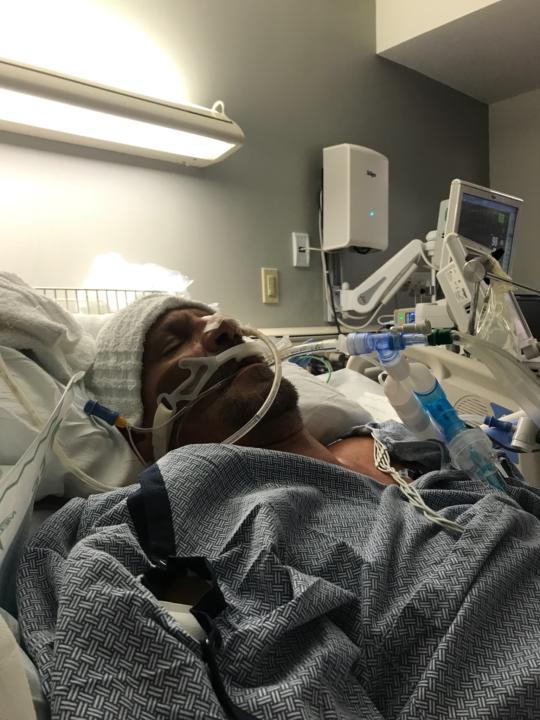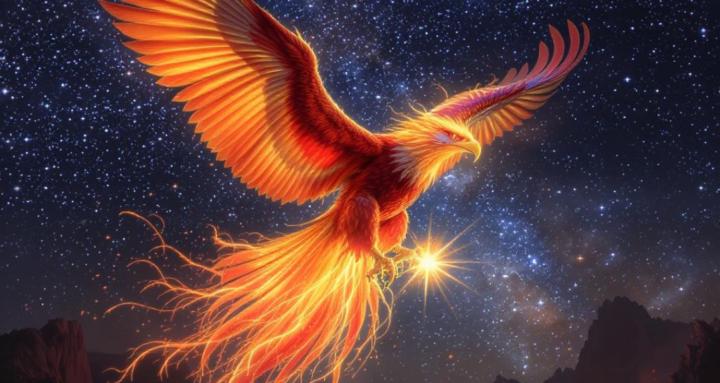
Write something
Welcome to Phoenix Rising - Survivors Heart
It doesn't matter if you have had a massive heart attack, sudden cardiac arrest, congestive heart failure, ventricular fibrillation, a transplant, a widow maker, or a Near Death Experience Life as you once knew it is gone. But the rest of the story is that your life is not at an end! This is a new beginning in many ways. Some of us have come away with rather profound awakenings, a new awareness of life from a different facet. Some have come away with a mission. My mission is to get helpful information into the hands or in front of the eyes of people who have recently woke up and find a diagnosis like one of the above. It is a resource that I wish I had. It is also the resource that I wish my wife had. It is my prayer that it is of help to you or someone you love that is now walking this path and I want you to know that I will be here. You are not alone. Below is a link to a FREE E-BOOK that I wrote just for you https://tinyurl.com/Heart-Failue-Now-What
0
0
From Life to Death & Back To Life Again
Beyond the Odds: An Inspirational Journey of Survival and Hope. By Jack Weisman When you or someone you love faces congestive heart failure or a major cardiac event, it’s common to ask: What are the chances? What do the statistics say? These questions come from a place of fear and uncertainty, wanting to understand the path ahead. But sometimes, the numbers don’t tell the whole story. Sometimes, the human spirit writes a different kind of story, one of courage, defiance, and the refusal to give up. This is a brief story of Greg Traver, a man his cardiologists have called a walking miracle. Greg has survived a total of five heart attacks over the years. Three of them were STEMI’s commonly called “windowmaker” heart attacks, blockages in the left anterior descending artery so severe that only about 12% survive. Hours after his second windowmaker attack, Greg went into ventricular fibrillation, resulting in sudden cardiac death. For 22 minutes, he was without a heartbeat, a time frame where most would expect survival to be impossible, or at best, survival with severe brain damage. He laid sedated and intubated until regaining consciousness three weeks later. Yet, Greg survived. Two years later, he faced the unimaginable again. He suffered his third windowmaker heart attack. Just two days later, he experienced sudden cardiac death for a second time. Once more, his heart stopped for 22 minutes before being successfully resuscitated. Medical experts agree this level of survival is extraordinarily rare. AI estimates place the odds at less than one percent of one percent. Yet Greg is here, determined to share his story of encouragement to others who are now facing the same crisis. There are no boundaries and no limits to miracles, anything is possible. And as he is fond of saying, "Quitting is not an option". What Greg’s Story Teaches Us About Statistics and Survival Statistics serve as guides useful tools to understand broad trends and risks. But they do not define individual destiny. His experience shatters the illusion that survival is purely a matter of odds. His journey reminds us that healing, survival, and life itself are sometimes governed by factors beyond calculation: the will to live, the love of family, the skilled determination of medical teams and divine intervention.

Recovery Starts With Gratitude
There I was, sitting quietly, waiting to be seen just like many patients do. You know how it goes: eventually someone breaks the silence with that classic question, “So, what brings you here?” It’s kind of like being in jail and hearing, “What are you in for?” Except instead of criminal offenses, it's diagnoses. After I tell my story, there’s always a moment of pause, followed by some version of, “God has plans for you,” or “You’re not finished yet.” Honestly, over the years, I’ve heard this so many times from Cardiologists, Doctors, and Nurses saying that I was a walking miracle that I wanted to scream. I could barely walk, I was short of breath and talking only made it worse. I felt trapped in a crippled body. One morning, I was enjoying breakfast with my daughter at a Cracker Barrel, a cozy, down-home kind of place, when a woman approached me. “Are you Greg Traver?” she asked. I said yes, wondering what was coming next. She introduced herself, and we got to chatting. When she was leaving, she asked if we could snap a selfie together. I was happy to oblige. Turns out, she was one of the amazing doctors who cared for me while I was in the cardiac intensive care unit. Naturally, I had zero memory of our previous encounter. Later, I asked my wife who’s an ER nurse why that would happen. She simply said, “You remember the ones who make it. "Their stories you remember when the shifts are hard". I’ll be honest with you: for a long time, I felt like a vegetable. Months passed before my mind felt like it was finally settling, like all the scattered puzzle pieces were clicking into place and I could think clearly again. Then came the real challenge, The Darkness of Despair I quickly realized I wasn’t medically fit to return to my old career. Heck, I wasn’t even qualified to get myself dressed, much less drive anywhere regularly. The frustration was real. When someone would say, “God has a plan for you,” I’d smile and nod, but secretly entertain myself by imagining giving them a smack upside the head. jk
0
0
When Life Changes in an Instant: The New Reality After a Cardiac Event
The moment you hear the words “You’ve had a heart attack” or “Your heart condition is serious” everything shifts. For many who are still in the hospital or just recently discharged, this shock is only the beginning of a profound journey. A journey not just of healing the body, but of redefining life itself. The Challenge of a New Reality Life as you know has changed dramatically. The routines, the plans, the sense of invincibility feel fragile or even shattered. It’s natural to feel overwhelmed by the sudden void where your old life used to be. The hospital stay and recovery brings physical challenges: weakness, limited mobility, and the need for strict new health routines. But the mental and emotional terrain can be even more daunting. You might find yourself trapped in a loop of second-guessing. Did I do something wrong? Could I have prevented this? Why me? These questions swirl, sometimes endlessly. They can fuel an exhausting self-doubt that clouds your mind and drains your spirit. Memory Lapses and Foggy Moments It’s common to experience memory lapses, trouble concentrating, or what some call “brain fog.” This is not just frustration, it’s a real part of recovery. Stress, medication side effects, and even the trauma of the event can interfere with your cognitive clarity. These moments can feel like losing pieces of yourself, making it harder to feel grounded or confident. But remember, these foggy moments are temporary. They are the brain’s way of healing and adapting, and with time, patience, and the right support, clarity will return. The Emotional Rollercoaster Alongside physical healing, there’s a complex emotional journey. Fear and anxiety about the future, sadness for what feels lost, and sometimes anger or guilt can all surface. This emotional turbulence is natural but can be overwhelming if left unaddressed. The Power of a New Beginning: Recovery Begins with Gratitude Here’s where the true transformation starts. Amidst the chaos and uncertainty, the single most powerful step you can take is to embrace gratitude, the simple, profound act of being thankful that you are still here. That you have another breath, another sunrise, another chance. Is THE KEY is recovery.
0
0
1-4 of 4

skool.com/phoenix-rising-6994
Heart Attack, CHF, V-Fib, Widow-Maker, Transplant, whatever, life as you once knew is over. But it's not the end it's a new beginning. Here's How.
Powered by
